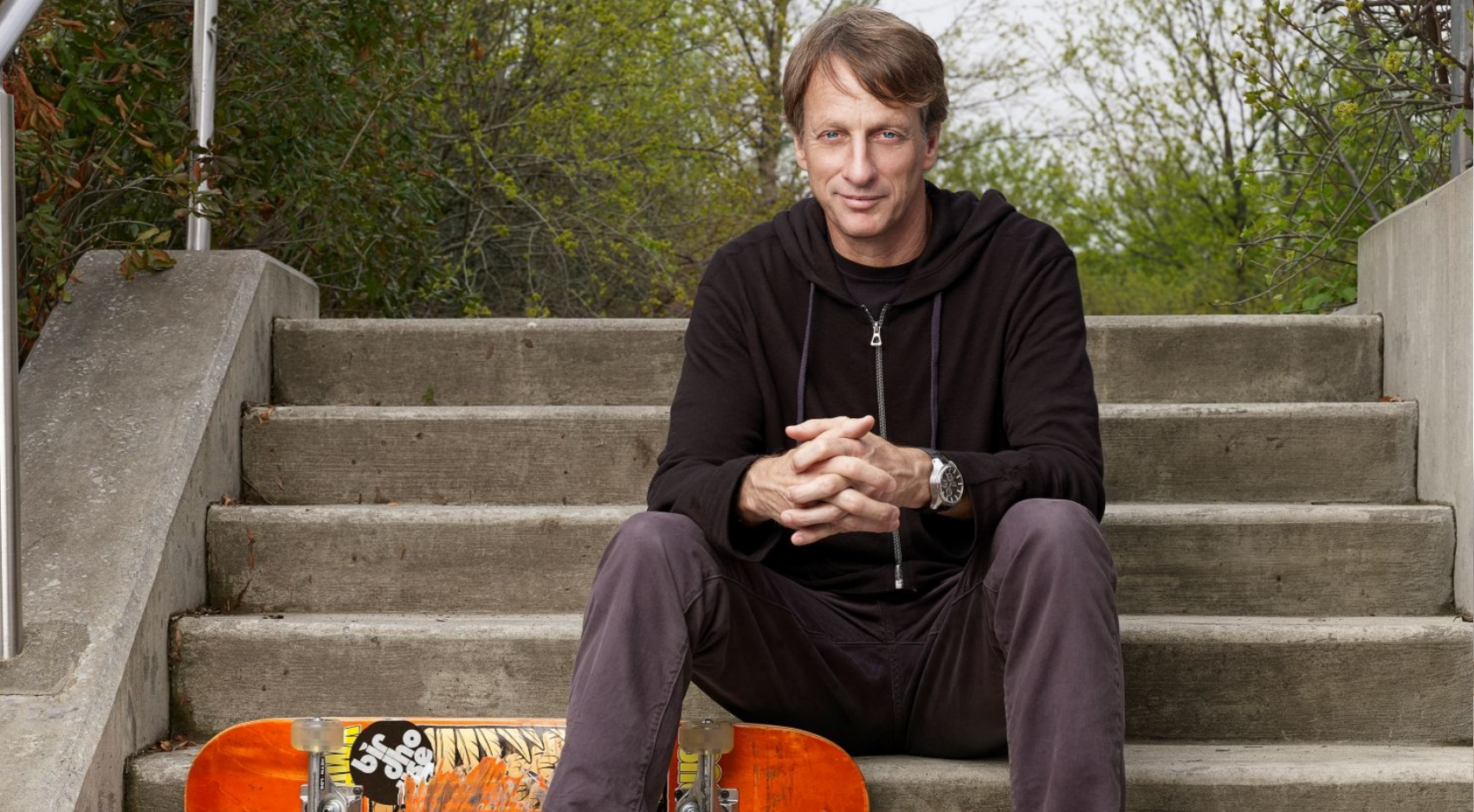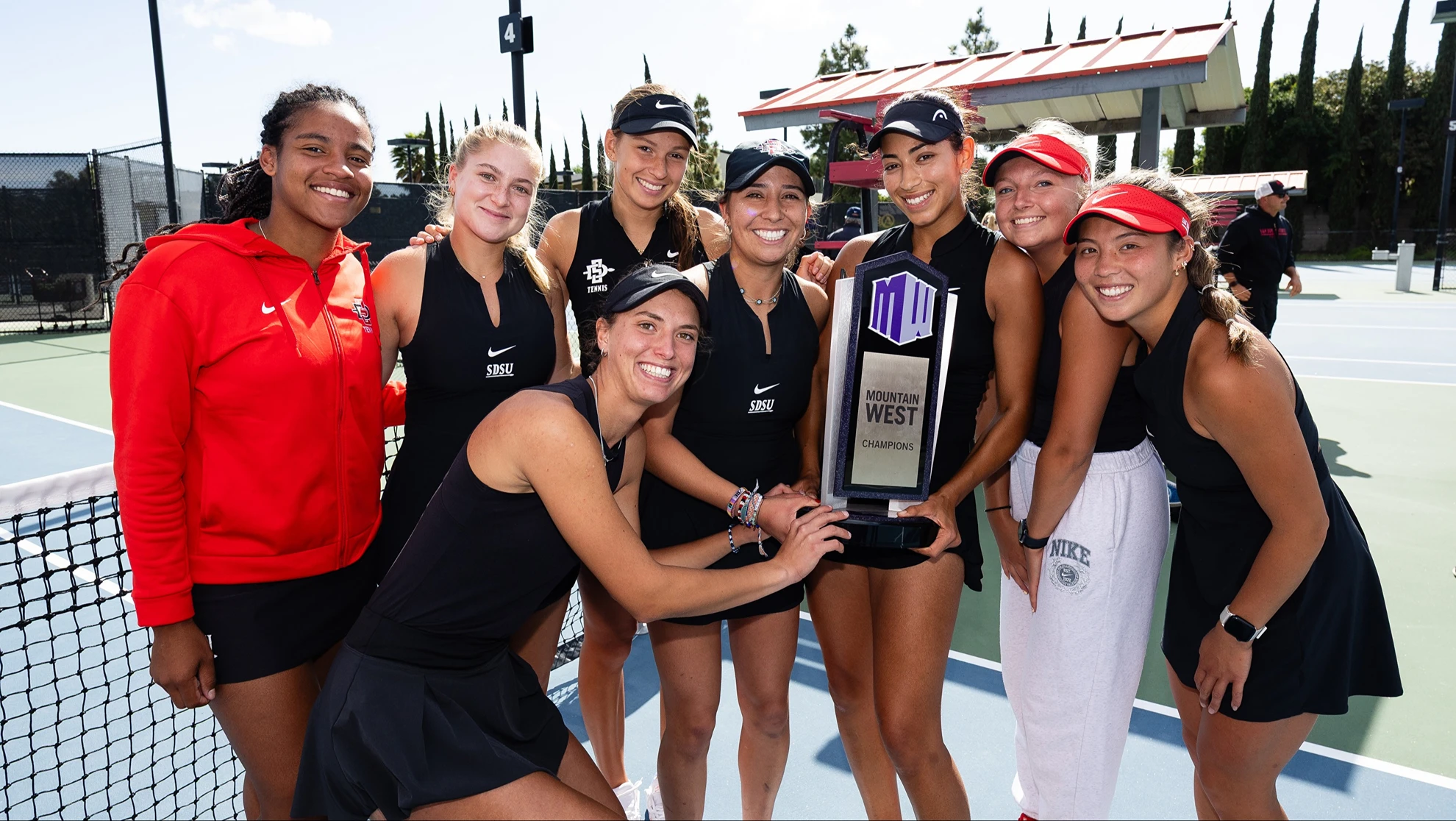Tony Hawk Tops Slate of Surf/Skate Legends, Scholars at SDSU's Stoke Sessions
Critical reflection on the culture, politics, and history of surfing and skateboarding is the subject of four-day conference.

The Stoke Sessions conference, April 20-23 at San Diego State University, will bring together surf/skate legends and scholars for panel discussions highlighting the social, political, and historical context of the two subcultures.
“We’ve tapped into a global community,” said David Cline, professor of history and director of the Center for Public and Oral History.
Cline, co-author of a forthcoming book on skateboarding and social justice, helped plan the conference for scholars to integrate their research with their passions. He interviewed the founders of Rolling for Rights, a San Diego organization whose members coordinated 2,000 skateboarders to roll down Sixth Avenue for a 2020 Black Lives Matter rally.
“Interestingly they combine BLM with skateboarder rights.” he said, citing the community’s longtime slogan that “skateboarding is not a crime.”
A 2021 University of Southern California study supports the idea that skateboarding has societal value and makes an impact in the community. “Skateboarding has often been seen as this fringe, if not outright sort of criminal activity, but we now have actual proof that it's the opposite,” Cline said.
Cline has been skateboarding since the age of 10. “My friends and I all looked up to Tony Hawk,” he said. “He was on the cover of Thrasher Magazine all the time and we all wanted to be Tony Hawk.”
San Diego native Tony Hawk, professional skateboarder, entrepreneur and founder of The Skatepark Project, will deliver the first keynote address with his brother Steve Hawk, former editor of Surfer magazine, at 6 p.m. Thursday, April 20 in Montezuma Hall. The conference is free and open to the public.
The discussion will tap into how Tony first got into skating. “Our dad flew torpedo bombers off of aircraft carriers in World War II and ended up being stationed in San Diego, where he fell in love with bodysurfing and where we grew up,” Steve Hawk said in an email. “That's why I became a surfer, and through surfing became a skater, and then ended up giving Tony one of my old skateboards, which is now in the Smithsonian.”
The Hawk brothers will explore the differences between the surf and skate cultures, especially when it comes to DEI issues, and will talk about the global aspect of both sports.
Sociology professor Mike Roberts, who teaches Cultural Origins of Surfing, said the conference is a “culmination of what we have been doing curriculum-wise for 10 years. We’ve created a curriculum that focuses on surf and skate cultures and we have five courses on those topics now.”
He hopes SDSU will be a worldwide leader in surf and skateboard studies at the academic level. “It makes sense that SDSU is a hub — part of the cosmos of surf and skate — an academic center for this, especially since Southern California is historically seen as an originator of the lifestyle,” he said.
Conference highlights
A schedule of events is posted online. Friday and Saturday keynotes include Selema Masekela, who calls himself an action sports evangelist and will be in conversation with scholar Neftalie Williams to discuss diversity and inclusion in surfing. Williams, a principal investigator on the USC study, will join the sociology department in fall. Another speaker is Dian Hadiani, author of the surfing book “The Chronicles of G-Land,” whose talk focuses on sustainability and surf communities in Alas Purwo National Park in Java.
Two of the more than 25 panels feature surfer Shaun Tomson (Surfing as an Intervention to Create Organizational Engagement) and local legend Richard Kenvin (California: The Formation of Mainland Surf Culture).
“We are interested in how surfing and skateboarding subcultures are linked up to social movements like Black Lives Matter or the LGBTQ+ and women’s movements,” Roberts said.
Rachel Bilchak, a first-year anthropology graduate student, served on the conference planning committee. Despite only skateboarding once in her life, she enrolled in professor David Kamper’s Histories and Cultures of Skateboarding course. “I didn't realize there was such a cultural shift from it being an activity to it becoming a lifestyle,” she said. “It is interesting to see that for so many people it becomes the whole aspect of their life, like a religion.”
One of the panels she plans to attend is “Gendered Surfing Through Embodiment and Language,” mainly because within her area of study, she is focused on bringing more women into the archaeological record. “Having women represented in these fields is something that I am very passionate about,” she said.
Aidan Skillingstad, a fourth-year urban studies student who is in the Cultures and Histories class this semester said, “Skateboarding is massive right now. So using that power to do something good is a no-brainer.”
Learning the history of skateboarding (pre-’90s) and incorporating a framework of sociology and anthropology has been the most interesting aspect of the course for Skillingstad, who grew up playing the Tony Hawk video game with his older brother and was inspired to pick up a board as a youngster.
The conference is hosted by the Surf/Skate Studies Collaborative and SDSU College of Arts and Letters, and sponsored in part by the L. Robert Payne School of Hospitality and Tourism Management and the Center for Surf Research.



